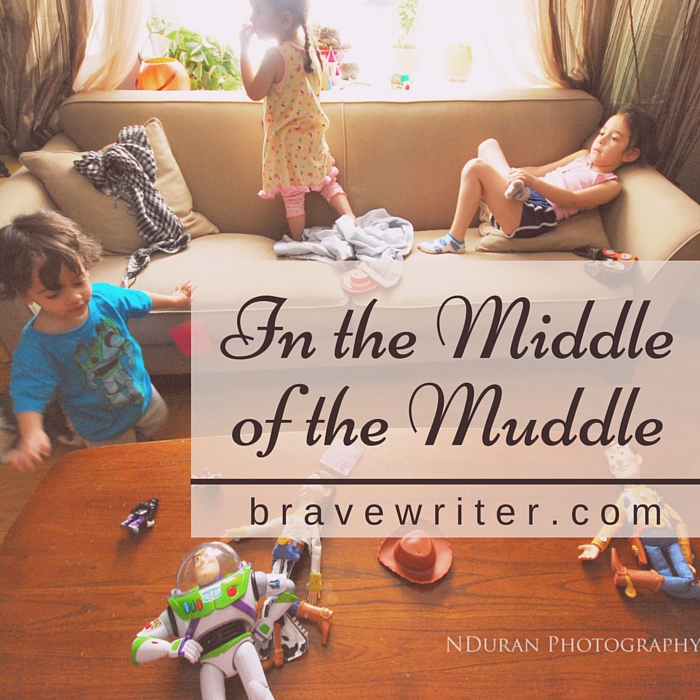 Image by Javier Ignacio Acuña Ditzel
Image by Javier Ignacio Acuña Ditzel
In the context of mutual respect, the healthy discharge of anger has a place:
Anger says, “This far, and no further.”
Anger says, “Step off” or “Step back.”
Anger alerts the room: “Something’s not right. Someone’s not happy. Something needs to change.”
Anger clocks your own immobilizing depression to the floor while the secret you-that-has-needs shows up, ready to handle what must be done.
Anger sends a power surge—suddenly you are your own advocate, standing for your point of view, come what may!
Anger lets the people who take you for granted know that you are, in fact, here—”You show up” when angry.
My kids have a word to describe me when I hit that wall—when my tolerance and goodwill, my empathy and earnestness are depleted. They say, “Mom is pa-dunk-ah-dunking.” It’s their signal to each other: Back up and help Mom.
What they mean is that my eyes go a little crazy-cross-eyed, my tone of voice ratchets up an octave, and my desperation to be heard leads me to shout and stride all over the room, pointing at what must be done RIGHT NOW.
In those moments, I’m not my “best self.” Or at least, I’m not my ideal self.
But I’ve come to see that if I don’t notice the build up of resentment or the fact that I had given so much, I ran out of stuff to give, it is inevitable that a mini pa-dunk-ah-dunk chain reaction is on its way.
Sometimes I’m in the middle before I know I’m in at all! The outburst shocks me as much as the kids.
What I’ve come to understand about anger:
You rarely discharge anger carefully or correctly. The books that tell you how to do it “the right way” assume that in your moment of anger, you have the wherewithal to remember the right words! If you’re good at that, my hat is off to you! For me, I don’t call my kids names and I don’t abuse them, but I do get mad sometimes, and I say it the way it comes because anger is like that—it’s a fire that sweeps through. It’s the last straw—I don’t have other straws to offer.
Anger is a sign to me that I forgot I’m part of the equation in this family. I give, and give, and give, and try to understand and care and support and create space… and then all of the sudden, I discover no one has done that for me, not even me. And bam! Out it rolls. Translating my anger, you would hear this subtext: “Make room for me! Notice my needs! Help me feel respected!”
Anger enables you to set a boundary as a last resort. When you set a boundary, you can’t also take care of someone else’s feelings at the same time so anger helps you to care more about the boundary than the reaction of the people you love. Anger in this context is self-care.
Occasional anger is NOT the same as a habit of anger. If you use anger every day, if you resort to anger any time you feel misunderstood or the external world doesn’t match how you need it to be in order to feel peaceful, it’s possible that your anger will become cruel (or in some cases abusive). Anger cannot be the go to emotion for coping with frustration. No one else is responsible to make your life good. Anger is not the emotion to use to get other people to manage your life for you. You must do that for yourself.
Finally, anger doesn’t have to involve yelling. If you notice the creeping signs of “I’m frustrated,” or “I feel disrespected,” or “I’m needy,” a straight forward declaration can be far more effective in resetting the dial in your home. “I’m getting resentful that no one has heard my need to be ready to go in 10 minutes. I need to see some evidence of that now. I can feel my jaw tightening and I don’t want to yell. Help me.”
I’ve spent most of my life terrified of anger. Truly. The thought of someone yelling at me can cause me to tremble, even now. Psychologists say that depression is anger turned inward. Women have a greater tendency to do this than men.
Anger can be liberating, and it can take away that powerlessness that goes with depression.
I’ve had to learn that:
Anger directed at me isn’t always personal.
Rage is not the same as anger (rage is the uncontrolled violence of anger that is intended to damage/harm/destroy the object in its path).
The rising feeling of anger is a sign to me that something is not right.
Our kids use anger in much the same ways we do, but with less reflection and sometimes less self-control. It helps to know that they are experiencing exasperation, frustration, a sense of violation, or a loss of self when they shout or scream or kick or throw tantrums. We can teach them to express it without abusive language.
The bottom line is that all parents get angry at their kids, at each other. Homeschoolers have more opportunities to create the friction that leads to anger simply because we’re all together so much and so much has to get done.
See if you can identify what kind of anger you are feeling. Notice it. Take a moment to let the feelings ride through you before discharging it (if you can). Get familiar with your triggers. Practice meeting your own needs. Always ask for help.
If anger is a problem for you, do get help. The professional kind. You and your family deserve it.






















